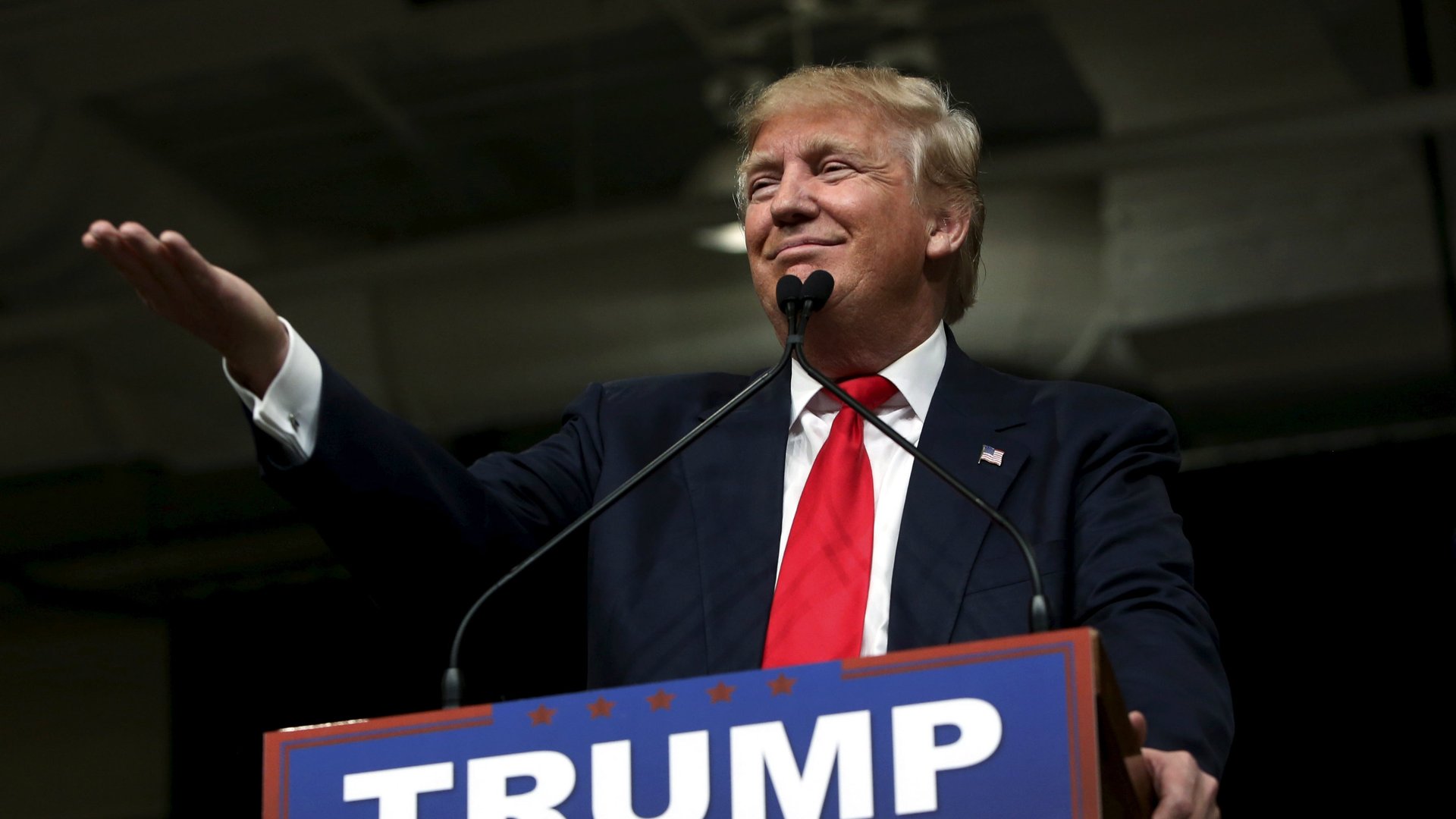How Trump won: South Carolina voters opt for “straight talk” over everything else
Columbia, South Carolina


Columbia, South Carolina
He did it again. Real estate developer Donald Trump just won the South Carolina’s primary with 34% of votes, according to preliminary returns, which should leave him with the overwhelming majority of its delegates. The validation of the real estate tycoon/reality-TV star raises the prospect that Trump, having easily won in New Hampshire, could dominate the 12 mostly southern and midwestern states that vote on Super Tuesday (Mar. 1) and take a commanding lead in the Republican primary.
A strongly Republican state, South Carolina has roughly the population of Iowa and New Hampshire combined. Its primary voters are composed of diverse swathes of conservatives, including heavily Christian pockets in the northwest, moderates around the wealthier coastal hubs, and a healthy sprinkling of independents throughout.
Trump’s win means Republican voters—even deeply Christian ones—care less about values or policies than having a crusader for their grievances.
Consider Trump’s run-ins with the Pope and Apple in the week running up to the election. Or voters’ reaction to his immigration policy, which was consistently what South Carolinian supporters told Quartz that they like most about Trump.
“I love what he stands for, that he’s not owned by the establishment, that he wants to make America great again…and that he has a plan for doing this, with immigration,” said Sara Dick, a nursing student and Army veteran, during a Trump rally in Sumter, SC, on Wednesday (Feb. 17). She voted for Barack Obama in 2008.
“Someone who’s willing to fight for Americans—that means a lot to me,” Dick added. “That he wants to protect my child’s right to be here.”
All about “winning”
This is exactly what Ted Cruz and Marco Rubio miss as they nitpick each other’s immigration policies. Most voters don’t see the Trump’s immigration rhetoric—e.g. banning Muslims and kicking out 11 million undocumented immigrants—as policy proposals so much as symbols of his commitment to helping Americans “win.”
Throughout the last few weeks, the state’s biggest GOP luminaries—notably, governor Nikki Haley and senator Tim Scott—have rallied around Rubio. The party’s advocates and its anointed candidates have spent the last few weeks railing against Trump’s defiance of the GOP orthodoxy—for instance, his position on eminent domain, or the qualified support for Planned Parenthood he voiced in the most recent debate—and questioning his character (one Bush radio spot was a medley of Trump’s bleeped-out curses).
But straight talk, for Trump supporters, trumps consistency. Nancy Pugh, a staunchly religious retiree who also attended Trump’s Sumter event, sees his willingness to change as a sign that he can be trusted.
“At one time, he might have been a part of that problem. When I see attack adds against him for things he did back in 1999, I do not hold him to those things,” she says. ”Perhaps, now he has seen the devastation that those things caused. Everyone can change their opinion on issues when they are given good reasons why they were wrong.”